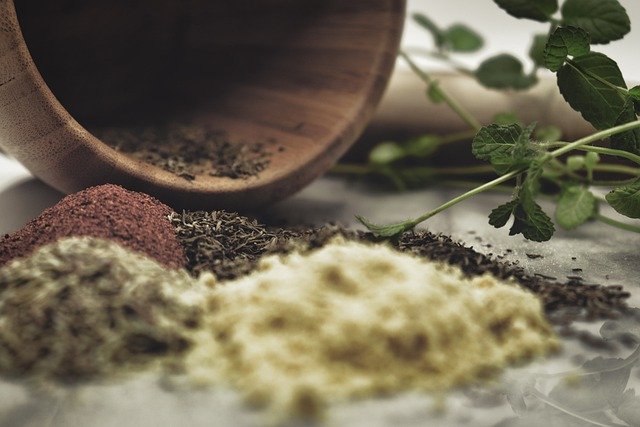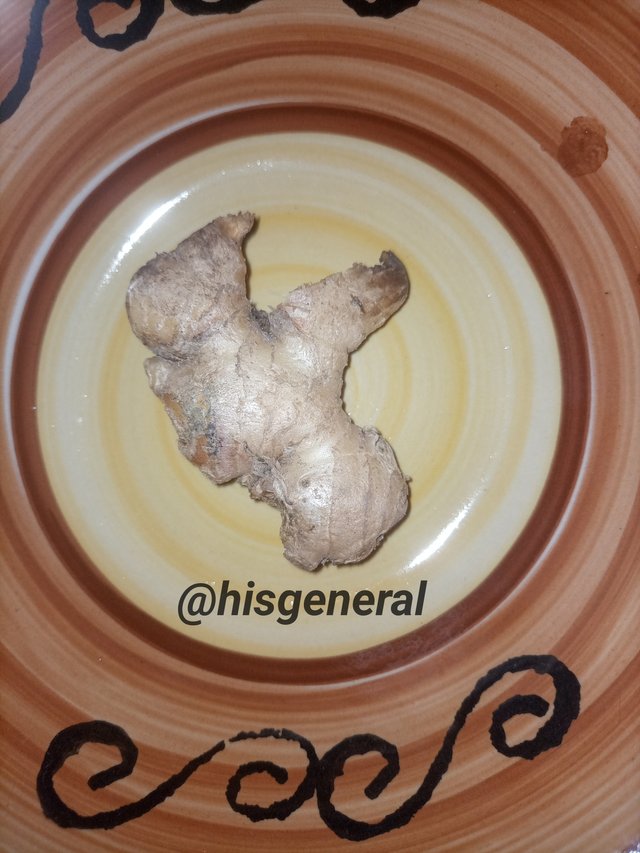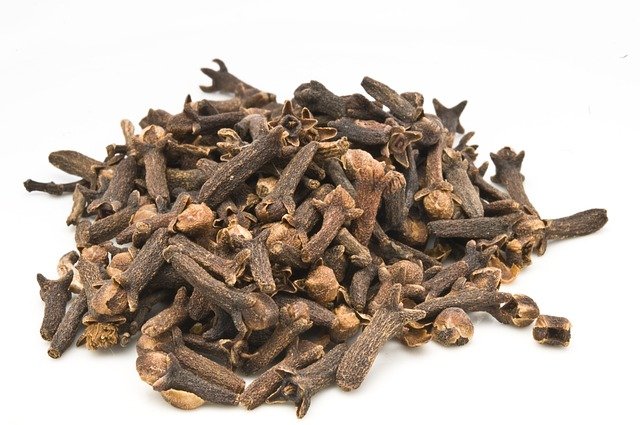Hello friends, I heartily welcome you all to my blog. This publication takes a look at herbal medicines, so let's get started...
 Source Source |
|---|
Research And Write A History Of Herbal Medicine In Your Culture Or Region. |
|---|
Herbal medicine in Nigeria has a rich history, dating as far back as thousands of years. Here is an overview:
Pre-Colonial Era (Before The 1800s)
Indigenous knowledge: Knowledge was passed down through generations by local healers and herbalists.
Traditional Herbalism: Nigerian cultures made use of plants for medicinal purposes.
Plant-based remedies: Treatments for different ailments, including fever, malaria, as well as digestive issues.
Colonial Era (1800s To 1960)
Introduction of Western Medicine: Colonial powers came up with modern medicine, that influenced traditional practices.
Suppression Of Traditional Herbalism: The colonial authorities perceived herbalism as "primitive."
Unstopped Underground Practice: Nigerians persisted in the use of herbal remedies in secret.
Post-Colonial Era (1960s To 1980s)
Resuscitation Of Traditional Herbalism: Nigerians endeavored to repossess cultural heritage.
Research And Documentation: Savants began studying, researching and documenting herbal remedies.
Establishment Of Traditional Medicine Departments: Herbal medicine became recognized by universities and research institutions.
Modern Era (1990s To Date)
Integration With Western Medicine: Herbal medicine became recognized as complementary therapy.
Standardization And Regulation: Government agencies formulated a rule of thumb for the production of herbal medicines.
Research And Development: Examinations on efficacy, safety, and quality control.
Commercialization: The herbal medicine industry grew, alongside local and international market presence.
Notable Nigerian Herbal Remedies
- Eru (for digestive issues)
- Ajumbise (anti-inflammatory)
- Udi (for skin conditions)
- Dogonyaro (remedy for fever)
- Agbo (malaria remedy)
Create A Table Comparing The Benefits And Side Effects Of Modern Medicines Vs. Herbal Medicines For Common Ailments (e.g., cold, headache). |
|---|
| Headache |
Common Side Effects:
| Allergic reactions | Digestive problems (nausea, diarrhea, stomach upset) |
| Drowsiness | Dizziness |
| Headaches | Drowsiness |
| Digestive issues | Increased heart rate |
| Interactions with conventional medications | Interactions with other medications |
Severe Side Effects (Rare):
| Liver damage (Echinacea, Ginger) | Liver failure (acetaminophen) |
| Allergic reactions (anaphylaxis) | Heart attack (triptans) |
| Kidney damage (Elderberry) | Kidney damage (ibuprofen) |
| Seizures (antihistamines) | |
| Stroke (ergotamines) |
Choose 3 Herbs From Your Kitchen Like Mint, Ginger, Or Turmeric And List Their Health Benefits. Mention The Recipes Where You Have Used These Herbs. |
|---|

The three herbs frequently used in my kitchen includes Ginger, Garlic, and Turmeric. Below are their health benefits:
Ginger (Zingiber officinale)
- Digestive aid: Alleviates nausea, bloating, as well as indigestion.
- Antioxidant: Guards against cell damage and oxidative stress.
- Anti-cancer Properties: Restrains tumor growth and incites apoptosis.
- Relieves Menstrual cramps: Relieves pain and inflammation.
- Anti-inflammatory: Mitigates pain, swelling, as well as arthritis symptoms.
- Relief of cold and flu: Eases congestion, coughs, and sore throats.
- Lowers blood sugar: Aids the regulation of glucose levels.
Garlic (Allium sativum)
- Cardiovascular health: Reduces cholesterol, triglycerides, and blood pressure.
- Anti-cancer properties: Lowers growth of tumor and induces apoptosis.
- Respiratory health: Eases asthma, bronchitis, and coughs.
- Digestive relief: Supports gut health.
- Immune system booster: Improves natural killer cell activity.
- Antibacterial and antiviral: Fights infections and diseases.
- Neuroprotective: May lower Alzheimer's and Parkinson's risk.
Turmeric (Curcuma longa)
- Anti-inflammatory: Curcumin lowers pain, swelling, and arthritis symptoms.
- Anti-cancer properties: Restrains tumor growth and induces apoptosis.
- Heart health: Reduces cholesterol, triglycerides, as well as blood pressure.
- Skin and wound healing: Improves collagen synthesis.
- Antioxidant: Guards against damage of cell and oxidative stress.
- Brain health: May lower Alzheimer's and Parkinson's risk.
- Digestive Relief: Aids bloating, gas, and indigestion.
Here are some delicious recipes where I have used ginger, garlic, and turmeric:
####Ginger Recipes
- Ginger Tea
- Ginger Chicken Stir-Fry and
- Ginger Lemon Bars
Garlic Recipes
- Garlic Roasted Chicken
- Garlic Shrimp Pasta and
- Garlic Naan Bread
Turmeric Recipes
- Turmeric Latte (Golden Milk)
- Turmeric Chicken Curry and
- Turmeric Roasted Vegetables
There are other recipes in which these three can be combined to make a delicious dish. These recipes demonstrate the versatility of ginger, garlic, and turmeric in different dishes.
Write About The Different Forms Of The Herbs. |
|---|
The different forms of which herbs can be taken or consumed are as follows:
Oral Forms:
- Syrups: Sweetened herbal solutions.
- Infusions: Steeped herbs in oil or water.
- Tablets: Strong herbal extracts.
- Teas: Infusions of fresh or dried herbs in hot water.
- Decoctions: Boiled herbs in water.
- Tinctures: Strong liquid extracts.
- Capsules: Powdered herbs in vegetarian or gelatin capsules.
Topical Forms:
- Herbal baths: Immersed herbs in bathwater.
- Lotions: Herbal extracts in water-based solutions.
- Creams: Herbal extracts in moisturizing bases.
- Essential oils: Strong plant oils.
- Salves: Herbal solution in fatty acid bases.
- Ointments: Herbal extracts in petroleum jelly or beeswax.
Traditional Forms:
- Ayurvedic churnas (powders)
- Herbal smokes (for inhalation)
- Poultices (herbal paste topically applied)
- Chinese herbal patents (pre-made formulas)
- Steeped oils (herbal extracts in oil)
Modern Forms:
- Herbal supplements (tablets/capsules)
- Herbal energy drinks
- Topical patches (herbal solutions in adhesive patches)
- Functional foods (herbal-infused foods)
- Herbal shots (strong liquid extracts)
Other Forms:
- Honey infusions: Herbal solutions in honey.
- Juices: Fresh herbal juices.
- Powders: Dried and grounded herbs.
- Vinegars: Herbs infused in vinegar.
- Extracts: Strong herbal extracts.
Pick One Herb And Research Any Potential Side Effects And How To Avoid Them. |
|---|
 Source Source |
|---|
Cloves
Cloves are aromatic flower buds of the clove tree known as Syzygium aromaticum which are used as a spice and herb in diverse culinary, cultural, and medicinal contexts.
While cloves are beneficial, they can cause side effects, mostly when taken excessively or by sensitive individuals. Here are probable side effects and ways to avoid them:
Common Side Effects:
- Allergic reactions: This includes hives, itching, swelling
- Skin irritation: Rashes, blisters, and burning sensation
- Headaches
- Disturbances in sleeping
- Digestive issues: Such as nausea, vomiting, diarrhea, and stomach upset
- Respiratory problems: This includes coughing, wheezing, shortness of breath
- Dizziness
Less Common Side Effects:
- Kidney damage: Protracted use or high doses*
- Bleeding disorders: Interaction with blood thinners
- Seizures: Uncommon cases, mostly with essential oil
- Liver damage: Acute doses or prolonged use
How to Avoid Side Effects:
- Consult healthcare provider before the use of cloves.
- Make use of whole cloves rather than essential oil.
- Properly store cloves to maintain potency.
- Track blood sugar and blood pressure.
- Begin with little quantities and monitor tolerance.
- Avoid extensive use (more than 2 weeks).
- Ensue recommended dosages:
- Whole cloves: 1 to 2 per day
- Ground cloves: ¼ teaspoon per day
- Essential oil: Dilute using carrier oil (1 to 2%)
Thanks a lot, it was indeed awesome to have you here. I am inviting @entity01, @ninapenda, and @ruthjoe.
My X promotion link
Downvoting a post can decrease pending rewards and make it less visible. Common reasons:
Submit